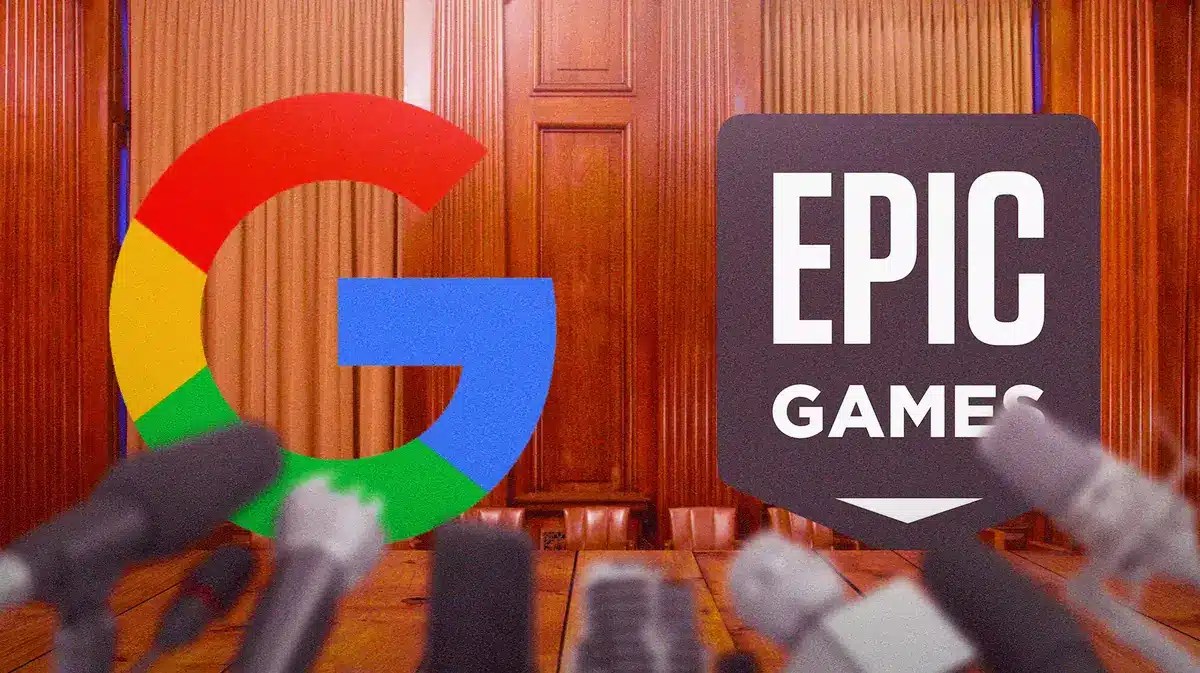In a verdict that resonates deeply through the corridors of the digital marketplace, Google faced a significant legal defeat at the hands of Epic Games. A federal jury, after a month-long trial and over three hours of deliberation, unanimously found that Google had violated antitrust laws by abusing its dominant position in the smartphone app store market. This decision, delivered on Monday, represents a watershed moment in the tech industry, highlighting the ongoing struggle between app developers and giant tech corporations.
Breaking: Google lost a case brought by Epic Games as a jury found the search giant had created an antitrust market with its app store https://t.co/xN0IddPHKg https://t.co/xN0IddPHKg
— The Wall Street Journal (@WSJ) December 12, 2023
Google's monopolistic practices exposed
The case, a key episode in a protracted three-year legal battle, revolved around Google's practices in its Play mobile app store. The unanimous decision of the nine-person federal jury was clear: Google not only had a monopoly in the smartphone app store market but also engaged in anticompetitive behavior that stifled innovation and limited choices for developers like Epic Games.
This ruling is poised to have sweeping consequences for the tech giant. It potentially mandates Google to overhaul its Play Store policies, opening up the market to competing app stores and offering developers alternatives to the hefty fees Google imposes on in-app purchases. The responsibility of outlining these remedies falls to Judge James Donato of the United States District Court for the Northern District of California, with the legal community and tech world eagerly awaiting the proceedings scheduled for the upcoming year.
Google's immediate response to the verdict was an announcement of their intention to appeal. Throughout the trial, Google's legal team and executives had put forth a vigorous defense, arguing that they faced stiff competition from Apple's App Store and challenging the notion that they had a monopoly over Android. This narrative, however, was resoundingly rejected by the jury's decision.
Potential overhaul of Google's Play Store
Epic Games initiated this lawsuit in 2020, driven by their ambition to assert greater control over the revenues from in-app purchases and to establish an alternative to Google's Play Store on Android devices. This recent victory is notably contrasted with Epic's earlier lawsuit against Apple, which was only partially successful and is currently in the appeals process.
Google, in its response to the jury's verdict, has reinforced its commitment to defending the Android business model on appeal. Epic Games, on the other hand, has framed the decision as a triumph not just for themselves but for app developers and consumers globally. They argue that the verdict is a clear denunciation of Google's allegedly monopolistic practices, accusing the tech behemoth of using its position to extract excessive fees, suppress competition, and hinder innovation in the tech industry.
The jury’s findings were explicit in condemning Google for violating antitrust laws, particularly in its operations of the Play Store and its in-app billing system. They concluded that Google intentionally sustained its monopoly power, imposing unreasonable restraints on the competitive abilities of other market players. Of particular interest was the jury's critique of Google's Project Hug, an initiative that offered financial incentives to major app developers to remain within the Play Store ecosystem, a strategy Epic's legal team described as akin to “bribes.”
Repercussions for Google and the tech industry
Tim Sweeney, the CEO of Epic Games, publicly celebrated the verdict, reflecting on the roots of the legal conflict. The dispute originated when Epic, in a deliberate breach of Google's policies, enabled direct in-app purchases, bypassing Google’s system. This led to the removal of Fortnite from the Play Store. The jury's decision, therefore, marks not just a legal triumph for Epic Games but also poses substantial challenges for Google in its future legal and business strategies.
The verdict's aftermath extends beyond the courtroom, potentially reshaping the dynamics of power and competition within the tech industry. With its credibility questioned following revelations about the deletion of pertinent internal chat messages during the trial, Google is now compelled to confront both the legal consequences and its public image. The tech giant, long viewed as an unassailable fortress in the digital realm, now finds itself at a crossroads, facing the reality of a changing industry landscape where monopoly power is increasingly scrutinized and challenged.
For more gaming news, visit ClutchPoints Gaming



















